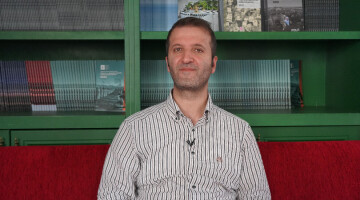Thanks to the agreement reached between Turkish president Erdoğan and German Chancellor Scholz last year, 13,500 Turkish nationals, mostly Kurds, whose asylum applications were rejected, will be deported en masse. 200 people have already been sent back. With this agreement, Turkey hopes to overcome visa obstacles in Germany. For the Kurds fleeing Turkish terror, this is a return to hell.
After months of negotiations with Turkey in Ankara, the Scholz government has started to send back many citizens of the Republic of Turkey whose asylum applications were not accepted.
The German-based Kurdish association Civaka Azad has issued a statement denouncing the Turkish-German agreement that will hand over Kurdish refugees to the Turkish state.
The statement said: "The new deportation agreement between the German federal government and Turkey represents another weak point in terms of human rights and reveals the ignorance of the state authorities to recognize the reality of Kurdish society in Turkey. Thousands of Kurds are at risk of falling victim to the “deportation offensive” at the traffic lights already announced in the coalition agreement.
Numerous reports and reports paint a frightening picture of the human rights situation in Turkey, especially with regard to the rights of Kurds. The Turkish judicial system operates far from the principles of the rule of law."
A recently published report by Pro Asyl, which examines in depth the independence, impartiality and protection of procedural rights of the Turkish criminal justice system, indicates that in Turkey, criminal law is used to suppress politically undesirable actions.
The statement said that "charges such as terrorist propaganda are brought arbitrarily and the corresponding criminal prosecutions are not conducted in accordance with the rule of law. Those affected have no opportunity to defend themselves effectively and legally. Certain risk groups are particularly at risk of being politically prosecuted, such as members of the opposition or people who comment on politically sensitive topics – although it is often difficult to estimate when an issue will become more explosive. Due to their systematic discrimination and oppression, Kurds are at greater risk than other groups.
More than 84 percent of the asylum applications filed by Turkish citizens in Germany last year came from Kurds. Under these circumstances, it is all the more alarming that the federal government has decided to deport people to a state in which fundamental constitutional principles are not respected. It cannot be ruled out that those deported will be exposed to arbitrary state repression and serious human rights violations."
The statement added: "Germany is complicit. The Kurds need protection from the Erdoğan regime and arbitrary state persecution. The new agreement is clearly in contradiction with the decisions of German courts.
Even though many asylum applications are rejected, some courts, citing the European Convention on Human Rights (ECHR), recognize bans on deportation to Turkey in accordance with Article 60 (5) of the Residence Act. According to this standard, deportation cannot take place if the protection of human rights and fundamental freedoms is not guaranteed."















